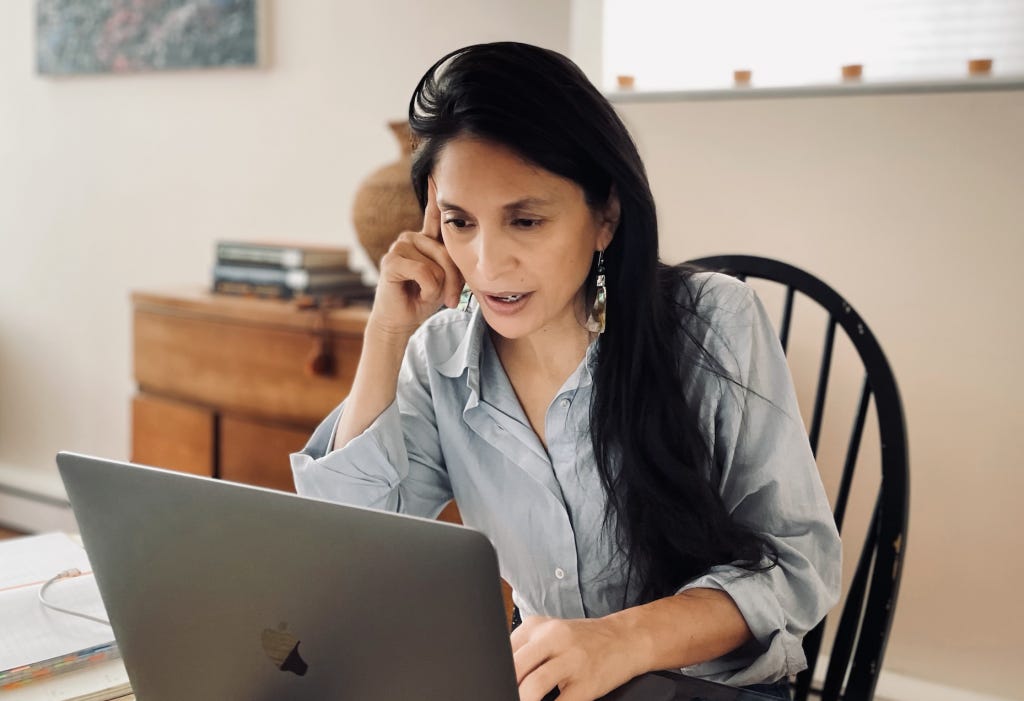Rare journalism about a community rarely understood.
Your hometown, that river you used to swim in as a kid, the exit of your area interstate — chances are they are all named after or inspired by the Indigenous people who once lived there. In the rarest cases, like in the Dakotas, some of the first inhabitants still hold ground on those ancestral lands.
If you’re new to this knowledge, it’s not your fault. In 2015, social scientists studying history standards in American public schools found that nearly all of them — 87 percent—failed to teach students about Indigenous Peoples past the year 1900. It means we’re frozen in the past and made invisible in the present.
But we are still here.
When you sign up for Indigenously, you’ll get enterprise reporting and nuanced analysis about Indigenous affairs at the start of your weekend. This newsletter is meant to be a long read - one that you make space and time for with good intention because that’s what decolonizing requires. It’s a practice.
But it’s not all serious. You’ll also receive a regular dose of gifs, memes, inspiring endorsements, and giveaways (we gifted Pueblo pottery recently)—and there’s more in the works.
As I told Ms. Magazine:
Colonization everywhere happens by the exploitation of Indigenous lands and what lies beneath it. And so reporting on pipelines, dams or the [Arctic National Wildlife Refuge] (ANWR) becomes necessary to understanding the Indigenous narrative behind these developments. In this way, it makes our story essential to every law and policy that dictates our society: health care, housing, banking, education. It all circles back to the land—which, for me, is a metaphorical gauge for how we treat our most vulnerable people, often Indigenous Peoples.
Perhaps Felix Cohen, who wrote the Handbook of Federal Indian Law, said it best:
“like the miner’s canary, the Indian marks the shift from fresh air to poison gas in our political atmosphere; and our treatment of Indians, even more than our treatment of other minorities, reflects the rise and fall in our democratic faith.” - Felix Cohen, 1907-1953
Praise for Indigenously:
“The must-subscribe newsletter”
- The Craig Newmark Graduate School of Journalism
“Such great coverage of Native American affairs”
“We love the Indigenously newsletter”
- Maria Hinojosa, Futuro Media
“Your newsletter has a lot of fans at the IWMF”
- International Women’s Media Foundation
“Highly recommended”
- Farai Chideya, Our Body Politic
About Jenni Monet:
My journalism career began in 1998 as a TV news reporter and anchor for the CBS affiliate, KREZ-TV, in Durango, Colorado. The Four Corners region is the ancestral homeland of my Pueblo relatives and the foundation of my journalism career. I credit all I know working in this profession—my skills, my ethics, my news philosophy—to that first job, including my deep care for chronicling the Indigenous narrative.
In my early days, I covered a coup d’etat among the Jicarilla Apache, a monthslong manhunt in Navajo Country, and the oil and gas boom on Southern Ute territory. When I moved to Albuquerque, and later, Tulsa, I continued to cover Indigenous affairs for CBS including the tense legacy of African slavery among the Cherokee Nation of Oklahoma.
I went on to produce independent documentaries about the impactful work of the Native American Rights Fund, about one Nation’s effort to save an Indigenous language, and about the earliest signs of the climate crisis from a sinking Alaska Native village in the North Arctic. My reporting across Indian Country also called attention to the dramatic anti-pipeline demonstrations at Standing Rock in 2016 and 2017 where I was a routine contributor for The Center for Investigative Reporting, PBS NewsHour, PRI The World, and MSNBC.
You can learn more about me and my work on my website, here.
Indigenously: Decolonizing Your Newsfeed arrives just in time for your Sunday morning coffee. When you click the sign-up link above, it will take you to a platform other than Substack where I’m currently publishing the newsletter. Oh, and it’s paywall free. See you in your inbox! - J.




